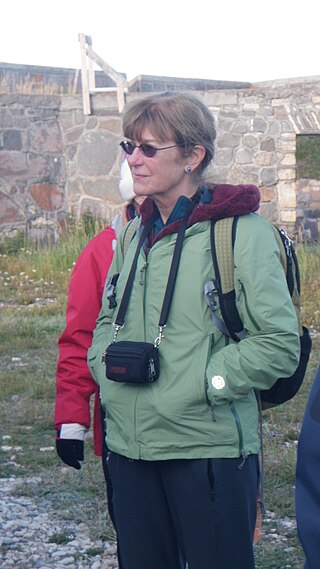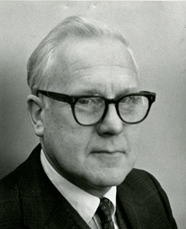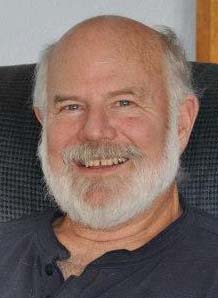Related Research Articles
Michael J. Watts is Professor Emeritus of Geography at the University of California, Berkeley. He retired in 2016. He is a leading critical intellectual figure of the academic left.

Carol Tecla Christ is an American former academic administrator. She served as the 11th Chancellor of the University of California, Berkeley, from 2017 to 2024.

Robert Gordon Sproul was the first system-wide president (1952–1958) of the University of California system, and a president (11th) of the University of California, Berkeley, serving from 1930 to 1952.

Stephen P. Hubbell is an American ecologist known for his work on tropical rainforests, theoretical ecology, and biodiversity. He is a professor emeritus at the University of Georgia and the University of California, Los Angeles.
Timothy James Clark is a British art historian and writer. He taught art history in a number of universities in England and the United States, including Harvard and the University of California, Berkeley.
Patrick Vinton Kirch is an American archaeologist and Professor Emeritus of Integrative Biology and the Class of 1954 Professor of Anthropology at the University of California, Berkeley. He is also the former Curator of Oceanic Archaeology in the Phoebe A. Hearst Museum of Anthropology, and director of that museum from 1999 to 2002. Currently, he is professor in the department of anthropology at the University of Hawai'i Manoa, and a member of the board of directors of the Bishop Museum.

Aldo Starker Leopold was an American author, forester, zoologist and conservationist. Leopold served as a professor at the University of California, Berkeley, for thirty years within the Zoology, Conservation, and Forestry departments. Throughout his life, Leopold was a public face for science. He was active in numerous wildlife and conservation groups and made significant research contributions in ornithology, mammalogy, and wildlife ecology. Leopold is notable for his ecosystem management paper, the Leopold Report, and his considerable presence in some of the most controversial wildlife issues, including national park wildlife policy, predator control, wildlife refuge, and fire policy.
Esherick Homsey Dodge and Davis is a United States–based architecture, interiors, planning and urban design firm. EHDD is ranked among the top 20 architecture firms in the San Francisco Bay Area where it is headquartered.

Oliver Payne Pearson, or "Paynie" to many that knew him, was an American zoologist and ecologist. Over a very active 50-year career, he served as professor of zoology at UC Berkeley and curator of mammals at the Museum of Vertebrate Zoology. Pearson is best known for his work on the role of predation on vole demography and population cycles, and for his piercing contributions to the biology of South American mammals, but his earlier studies on reproductive and physiological ecology are highly regarded as well.

James Lloyd Patton, is an American evolutionary biologist and mammalogist. He is emeritus professor of integrative biology and curator of mammals at the Museum of Vertebrate Zoology, UC Berkeley and has made extensive contributions to the systematics and biogeography of several vertebrate taxa, especially small mammals.

Mary Eleanor Power is Professor of the Graduate School in the Department of Integrative Biology at the University of California, Berkeley. Power is a member of the U.S. National Academy of Sciences, the American Academy of Arts and Sciences, and the California Academy of Sciences. She holds an honorary doctorate from Umeå University, Sweden, and is a recipient of the G. Evelyn Hutchinson Award of the Association for the Sciences of Limnology and Oceanography, and the Kempe Award for Distinguished Ecologists (2004).

Rosemary Gillespie is an evolutionary biologist and professor of Environmental Science, Policy & Management, Division of Insect Biology at the University of California, Berkeley. She was the President of the American Genetics Association in 2018 and was previously President of the International Biogeography Society 2013–2015. From 2011 to 2013 she had served at the president of the American Arachnological Society. As of 2020 she is the faculty director of the Essig Museum of Entomology and a Professor and Schlinger Chair in systematic entomology at the University of California, Berkeley. Gillespie is known for her work on the evolution of communities on hotspot archipelagoes.
James F. O'Connell is Distinguished Professor Emeritus of Anthropology at the University of Utah. He is a member of the National Academy of Sciences of the United States of America and is on the editorial board of the Proceedings of the National Academy of Sciences.

Peter B. Moyle is Distinguished Professor Emeritus in the Department of Wildlife, Fish and Conservation Biology and associate director of the Center for Watershed Sciences at the University of California, Davis. He has studied the ecology and conservation of fishes in freshwater and estuarine habitats in California (US) for over fifty years. He has a special interest in salmonid fishes and in the state's highly endemic freshwater and estuarine fish fauna. Moyle has authored or co-authored more than 270 peer-reviewed publications, including 10 books, and over 225 other publications, including ca. 75 blogs.
Jonathan B. Losos is an American evolutionary biologist, herpetologist and ailurologist.

Herbert George Baker was a British-American botanist and evolutionary ecologist who was an authority on pollination biology and breeding systems of angiosperms. He described what became known as "Baker's rule," a theoretical proposal underpinning an empirical observation that the ability to self-fertilize improves colonization ability among plants by increasing the probability of successful establishment after long-distance dispersal. He collaborated with his wife, Irene Baker, studying the content and function of nectar, and undertaking research and publishing papers on its evolutionary and taxonomic significance.
Kelly Zamudio is the Doherty Chair in Molecular Biology in the Department of Integrative Biology at the University of Texas Austin. She was formerly the Goldwin Smith Professor of Ecology and Evolutionary Biology at Cornell University and Curator of Herpetology at the Cornell Museum of Vertebrates.

Stevan James Arnold is an American evolutionary biologist. He is Professor Emeritus of Integrative Biology and was Curator of Amphibians and Reptiles at Oregon State University, Corvallis until his retirement. He has served as president of the Society for the Study of Evolution and the American Society of Naturalists.

Shahid Naeem is an ecologist and conservation biologist and is a Lenfest Distinguished professor and chair in the Department of Ecology, Evolution, and Environmental Biology at Columbia University. Naeem is the author of Biodiversity, Ecosystem Functioning, and Human Well-Being, and has published over 100 scientific articles.
Brent D. Mishler is an American botanist who from was the director of the University and Jepson Herbaria at the University of California, Berkeley, from 1993 to 2023. He was also a professor in the Department of Integrative Biology, where he taught phylogenetics, plant diversity, and island biology. Following his retirement in 2024 he is now Distinguished Professor Emeritus and Curator of Bryophytes, and continues an active research program.
References
- ↑ "Nicholas J MILLS". Our Environment at Berkeley. Retrieved 2019-09-07.
- ↑ "Mills Lab - Home Page".
- ↑ "Museum Staff".